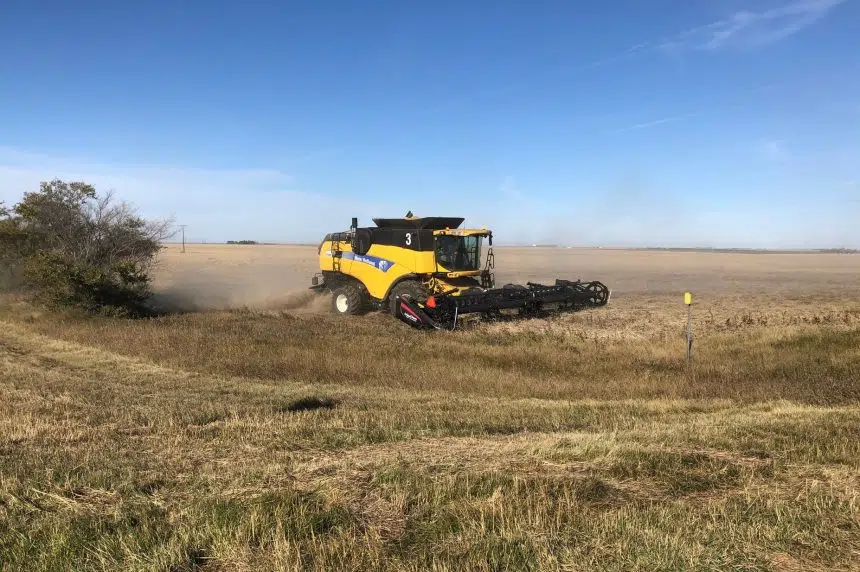From trade disputes with China to bad harvest weather to shrinking market access, this year’s farming season keeps getting worse for agricultural producers.
That was the case again Tuesday, as about 3,200 members of the Teamsters union with the Canadian National Railway went on strike across the country, effectively shrinking grain farmers’ access to domestic and international markets.
About half of the grain elevators in Alberta, Saskatchewan and Manitoba have access only to CN rail lines, according to the Western Grain Elevator Association.
Executive director Wade Sobkowich says it doesn’t matter the direction; all CN lines out of the prairies are halted for now.
“They run down to the United States … they run to Thunder Bay and further east and they run to the West Coast,” he said.
CN is also the only rail line that has access to Prince Rupert’s northern British Columbia port, along with Vancouver’s north shore terminal, he said.
“Any grain going (there) is going to be halted as well,” he said.
The strike also comes at the worst possible time of the year for producers.
“We want to move as much grain as we can between October and March, because that’s when the world is paying a premium for Canadian grains and oilseeds. If we have to push sales outside of that period, then we can’t command as high of a premium for them,” Sobkowich said.
As each day of the shipping stoppage passes, the impact on farmers “grows exponentially,” he said.
“In the beginning it means railcars aren’t moving between country elevators and port terminal facilities,” but farmers can still deliver grain to country elevators because of some space left in them, Sobkowich explained.
“But that will run out very quickly if trains aren’t moving, and it will also result in primary elevators getting plugged up.”
That will lead to farmers’ delivery schedules getting pushed back, and vessels at ports charging demurrage (fees for the delay) “because you have vessels waiting for grain that isn’t arriving.”
An agricultural producer wouldn’t pay those fees directly, but exporters like Richardson or Viterra would pay them and then pass on the expenses to producers, according to Sobkowich.
On Monday, Saskatchewan Agriculture Minister David Marit outlined his concerns in a letter sent to federal MPs Patty Hajdu and Marc Garneau. They’ve yet to be assigned cabinet posts by Prime Minister Justin Trudeau, but in the previous federal government, they served as the employment and labour minister and the transport minister, respectively.
Along with his fellow MLAs, Marit wrote: “With many farmers currently in distress from a tough harvest and ongoing trade disruptions and industry reeling from a challenging economy, we ask that you act as expediently as possible to end this potential labour disruption from occurring.”
Marit said the province is an “export-driven economy, and our shipments of potash, oil and grains and oilseeds rely on timely and predictable access to world markets.”
The Agricultural Producers Association of Saskatchewan (APAS) also expressed its concern over the strike.
President Todd Lewis said in a media release: “prairie farmers do not get paid unless we can ship our products to port.”
He said: “We have experienced a tremendously difficult production season on top of falling commodity prices due to trade issues in our major markets. Any additional factor which threatens our cash flow presents a grave risk to our operations … we have ships waiting at Canadian ports to load grain and we need our government to take all measures necessary to ensure that products can move.”
As workers at CN Rail go on strike, our govt is greatly concerned about the impact a work stoppage will have on producers that are already facing a tough harvest.
There needs to be an agreement reached immediately to ensure there is no delay in getting our commodities to market. pic.twitter.com/k2MmRxe9DA
— Scott Moe (@PremierScottMoe) November 19, 2019







